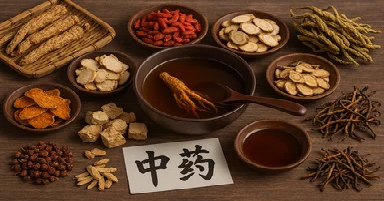Herbal Medicine
Herbal medicine is an integral component of traditional Chinese medicine (TCM). It is also one of the oldest (and most popular) forms of health care. Studies have shown that as much as 40% of all American adults use herbal products, with the amount of money spent on herbal remedies in this country each year in the tens of billions. The use of herbal medicine is even higher overseas, with some countries reporting a usage rate of 75% or greater.
The term "herbal medicine" refers to the use of a plant's seed, berries, roots, leaves, bark or flowers for medicinal purposes. While the scientific study of herbs in the United States began just over two centuries ago, herbs and botanicals have been used to treat a wide range of health problems in Asia for thousands of years.
When used to facilitate healing in chronic, ongoing problems, herbal medicine has a great deal to offer. Studies have shown that herbal products can treat a variety of conditions, including colds, digestive disorders, insomnia, headaches, arthritis, skin disorders, asthma, and a host of other problems usually treated with pharmaceuticals and prescription medications.
Typically, herbal formulas are prepared and delivered in a variety of ways:
- Decoctions. Traditionally, decoctions are prepared from mixing various herbs in a formula into a concentrated tea. It is very potent and fast acting.
- Powders. Herbal powders (or granules) are manufactured in a carefully controlled way, by cooking and concentrating herbs, then drying them using a special process that results in a easily dissolvable granular powder. These powders are very easy and convenient to use by just mixing with warm/hot water.
- Patent Formulas. These are pre-made herbal formulations in pill or tablet form. Patents are very popular with western patients because of their convenience, and ease of use.
Opening Times
Day Hours Monday - Friday 9:30AM - 6:00PM Saturday 9:30AM - 2:00PM Sunday Closed
Copyright © 2026 Fullerton Acupuncture and Herbs | Privacy & HIPAA Policy | Terms of Service | Accessibility Statement

